By Ben Morse and Becky Anderson, for CNN
CNN)She’s read it countless times but as Irish boxer Katie Taylor recites Psalm 18 her voice audibly drops an octave and her body language noticeably relaxes.
The psalm is embossed on the robe she wears to enter the ring and she reads it before every one of her fights.
The fiercely religious Taylor is not your prototypical undisputed world boxing champion — and never has been.
While kids of her age had posters of boy bands stuck on their walls, Taylor had one of Muhammed Ali in her bedroom, while her idea of sibling playtime was imitating legendary boxers Rocky Marciano and Jack Johnson as she played with her brothers.
A long road
Quietly spoken away from the combative nature of her chosen sport, boxing as well as playing soccer provided Taylor with a means to express herself as she grew up.
“You’d bring her home from soccer, then you wouldn’t get two words out of her,” Mum Bridget remembers.
Described by her mother as an “aggressive little character,” Taylor fell in love with boxing as soon as she pulled on the gloves at the age of 11.
“The minute I started boxing, it just really took hold of my heart,” the 33-year-old Taylor told Becky Anderson for a CNN special show dubbed Katie Taylor: #Undisputed.
“When I was maybe six or seven years of age, me and my brothers used to have the gloves on every weekend and just mess around in the kitchen.”
It didn’t come as a surprise to Bridget that her daughter took to pugilism, given that her father and her brothers were all boxers.
But in what until recently was predominantly a male-dominated sport in Ireland, getting the opportunity to compete in boxing as a women proved more challenging.
Despite training with boys at her local club, St. Fergal’s Boxing Club in Bray, Ireland, Taylor had to remain at home when the boys traveled to competitions.
“I think I was the only female boxer in the country at a time, so I used to have to pretend I was a boy to get in to these competitions,” she remembers.
“I used to have my hair up in my headgear and I used to be known as ‘Kay Taylor.’ So, when I took the headgear off at the end of the fight and everyone realized I was a girl, there was uproar.”
Changing perceptions
Growing up on what her mother describes as one of the “worst estates in the country” — Old Court in Bray, near Dublin — boxing for Taylor provided a means of escape.
There weren’t many women boxing role models to look up to but Deirdre Gogarty — Ireland’s first female professional boxer — was just that to Taylor
The Drogheda native was the internationally recognized world champion who couldn’t fight in her own home and had to leave the country in order to fight professionally.
Little did Taylor know it, but her persistence and abilities in the ring were changing people’s ideas about women’s boxing in Ireland. And coached by her father and training with her two elder brothers, Taylor’s perseverance began to pay off.
In 2001, aged just 15, Taylor fought Alanna Audley at the National Stadium in Dublin in what was the first officially sanctioned female boxing match in Ireland.
“I just remember being so excited,” remembers Taylor. “I’m actually getting my first official female fight and I don’t think I realized how big it, the event, actually was, or the enormity of it.
“To get ready for my first official female fight was a history making fight and women’s boxing hasn’t looked back since.”
It all comes down to this
After that bout, Taylor spent years traveling the world fighting in amateur tournaments — and often winning them.
She wasn’t just useful in a pair of boxing gloves. Taylor was equally talented with her feet — so much so she played 11 times for Ireland’s senior international soccer side including a number of qualifiers for the 2007 FIFA Women’s World Cup.
But the dream of winning Olympic gold focused her mind on boxing.
“I remember getting invited to a competition in Chicago for the Olympic committee,” recalls Taylor, who was told that the fight would determine whether women’s boxing would be in the Olympic Games.
“So, it was a huge pressure fight. What a position to be in. Petitioning for women’s boxing so that they have a right in the Olympic Games. And thankfully they passed it after that fight and women’s boxing is in the Olympic Games now to stay.”
Taylor’s trophies are on display in her mother’s new house — which is where she stays when she returns to Bray from her new base in Connecticut in the US.
Hanging on hooks beside the shelves that hold her belts are five world championship gold medals, six European gold medals, and five European Union gold medals, but there is one medal in particular that draws attention.
Seated on the top shelf in its own case is the gold medal Taylor won at the 2012 Olympics in London, something she describes as the “pinnacle” of her career. She was also Ireland’s flag bearer at the Games.
During the award ceremony, the Irish boxer was perfectly prepared to receive the gold medal because as a youngster, according to her mother, Taylor used to practice how she would accept a medal if she were to win one.
“It feels like a distant memory now, but to be the flagbearer for the London Olympics and to go and win the gold medal at that, it’s a childhood dream, right there,” Taylor said.
“There wasn’t a day that went by where I didn’t actually dream of that gold medal.”
Family support
Athletes from all disciplines often credit the impact their parents have had on their careers, and Taylor is no different.
Bridget and Peter Taylor spent countless hours ferrying their four children to different sporting events — in some instances, they used to drive past each other in their respective cars heading to different events.
They fanned her love for boxing by buying their daughter DVDs of her favourite fighters — in fact, Taylor describes one of her “greatest Christmas presents” as a DVD of every single one of Sugar Ray Leonard’s fights.
Heading into the 2016 Olympics in Rio de Janeiro, Taylor was the favourite to retain the gold medal. But just before the 2016 Games started Peter — her coach since she had taken up boxing — separated from Bridget and moved away from the family ahead of the tournament and she was eliminated in the quarterfinals, beaten by Mira Potkonen of Finland.
“We spent every single day together. We shared many great moments together,” an emotional Taylor remembers.
“We were definitely a great team. But just a breakdown of the relationship. Because he was obviously a great father.
“And I spent every single day with him. Trying to get ready for a big competition in the Rio Olympics, I guess I just couldn’t really focus.
“I guess it hurt so much just because of how much I loved him as well. But I still have a great relationship with my Dad. I still absolutely love him. He’s always been a hero to me. And, and that will never change as well. But just to go through that was really difficult for me.”
The start of something big
Taylor is very open about 2016 being her worst year in the ring after she lost three fights in four months.
“Life is about mountain tops and valleys,” reflects Taylor. “It’s great being on top of the mountain, but the valleys are the places that mature you.
“That’s where our character is built. And I knew that after the Rio Olympics there, I needed to change something. My career was going downhill very, very fast and I knew I needed to change.”
So Taylor contacted trainer Ross Enamait, who suggested she should move out to Connecticut to train with him.
Despite being a self-proclaimed “home bird,” Taylor relocated to the US and only comes back to Bray to visit her family.
After the Rio Olympics, Taylor also agreed her first professional contract with Eddie Hearn of Matchroom Boxing in October 2016.
She’s won all 14 of her first professional fights, claiming the WBA, WBO and IBF female lightweight titles.
That 14th fight — a unification bout against the holder of the WBC female lightweight title Delfine Persoon, a Belgian police inspector who trains the riot squad in her native country — was on the undercard of the recent Anthony Joshua vs. Andy Ruiz contest.
It was to test all of Taylor’s skill and mental strength.
The scoring of her 10-round victory over Persoon — 95-95, 96-94, 96-94 — was questioned by many in the boxing community, with former world champion Carl Frampton calling it a “disgraceful decision,” while former world heavweight champion David Haye even suggested that Taylor secured the victory as a result of “political power.”
“It’s actually a very, very easy fight to score in my mind,” says Taylor. “A lot of people had it 6-4 to me. Some people had it 5-all. But very, very few people, that I’ve spoken to, actually had her winning.
“And I’ve spoken to a lot of boxing experts over the last few weeks doing interviews and they all had me winning as well.
“But, you know, people don’t speak about that those sorts of things. They just focus on the controversy. And zone in on the negative comments.”
Following that controversial victory, the demands for a rematch have grown.
“The rematch is going to be on the cards very, very soon,” says Taylor. “And I can’t wait for that. I think people are going to be more interested in the rematch because of how close the fight actually was and how exciting the fight was.
“I definitely look forward to beating her a little bit more convincingly. She’s a fantastic fighter. And a fantastic champion. And I don’t think people really gave her any credit coming into this fight.”
The wider context
Since Taylor turned professional in 2016 there’s been a noticeable change in attitudes towards women boxing with the number of kids getting involved in the sport increasing steadily over recent years.
According to the Irish Athletic Boxing Authority, there are around 11,000 girls participating in boxing in Ireland at the moment.
“I love the fact that I can have a positive influence on young girls coming up and be a great example to them,” said Taylor, who during a visit to Temple Street Children’s Hospital with CNN, brought plenty of smiles to lots of kids’ faces.
“I really feel like it has had a great influence on this nation as well. Which is a great feeling to have.
“Every single boxing club in the whole country is just packed with female boxers now. And when I started boxing, I felt like I was the only female boxer around.
“So, to have a lot of girls looking up to you and to see so much talent going up is probably the most satisfying part of this journey.”
Article courtesy of CNN

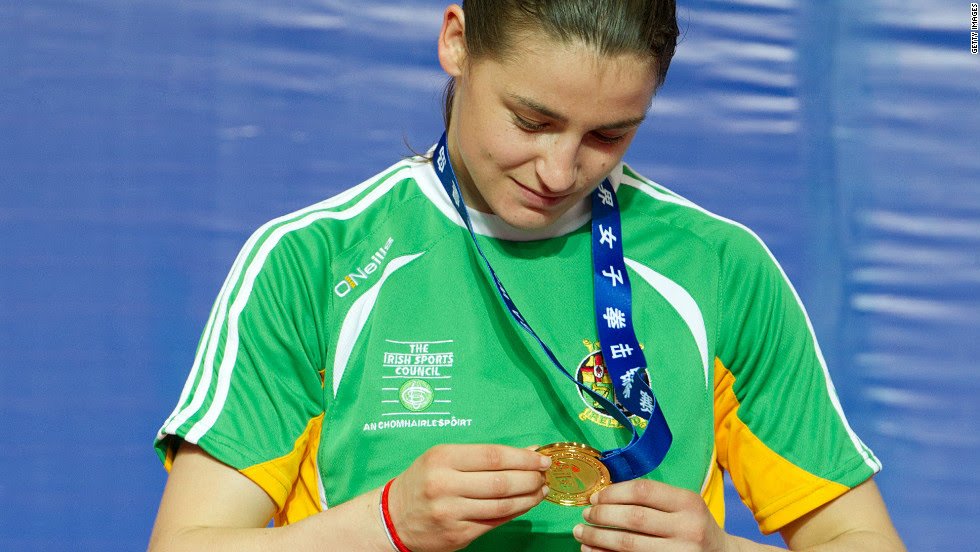
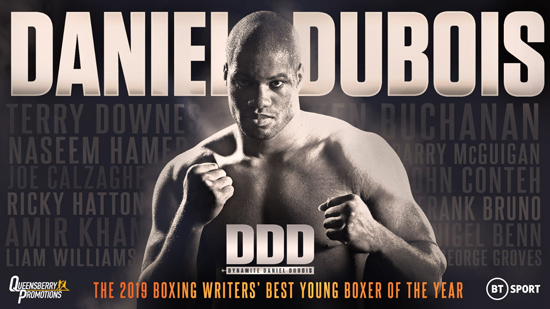
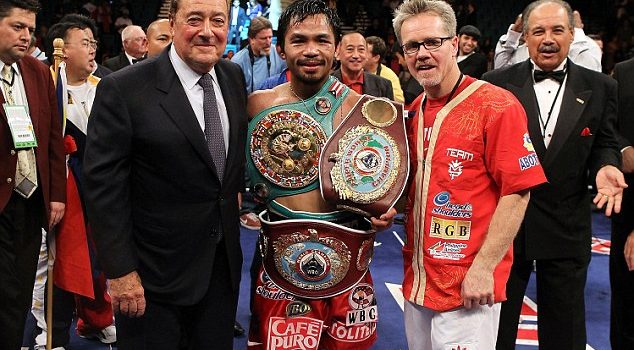
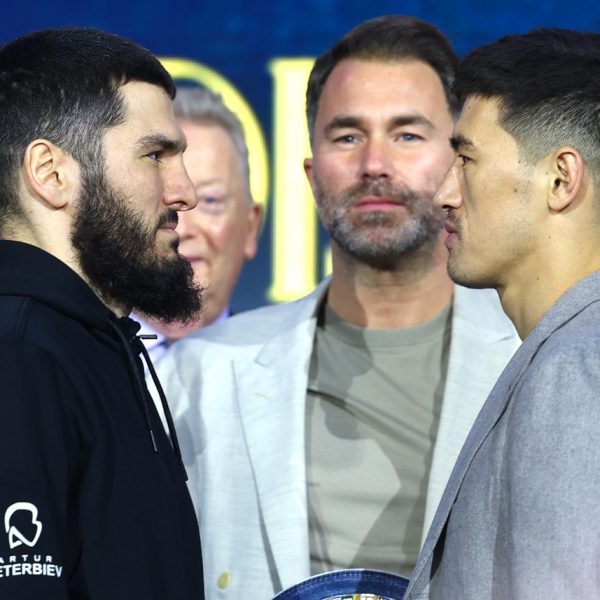
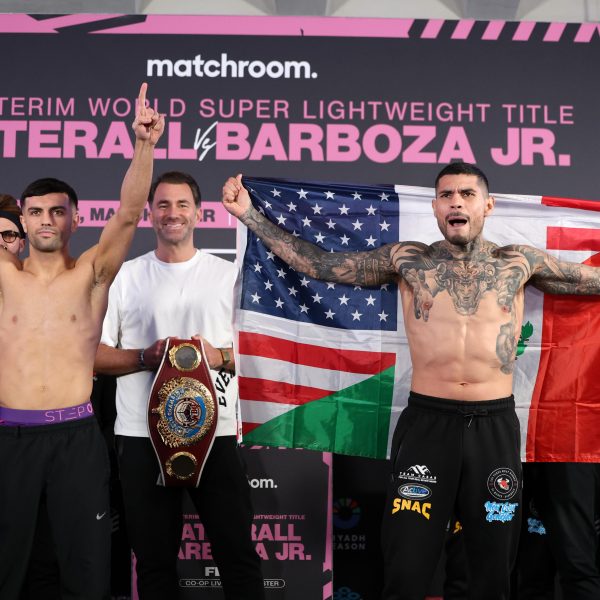
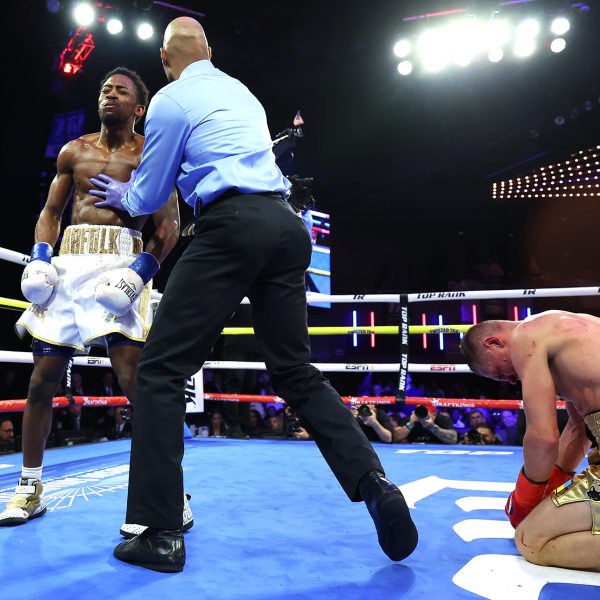


Recent Comments